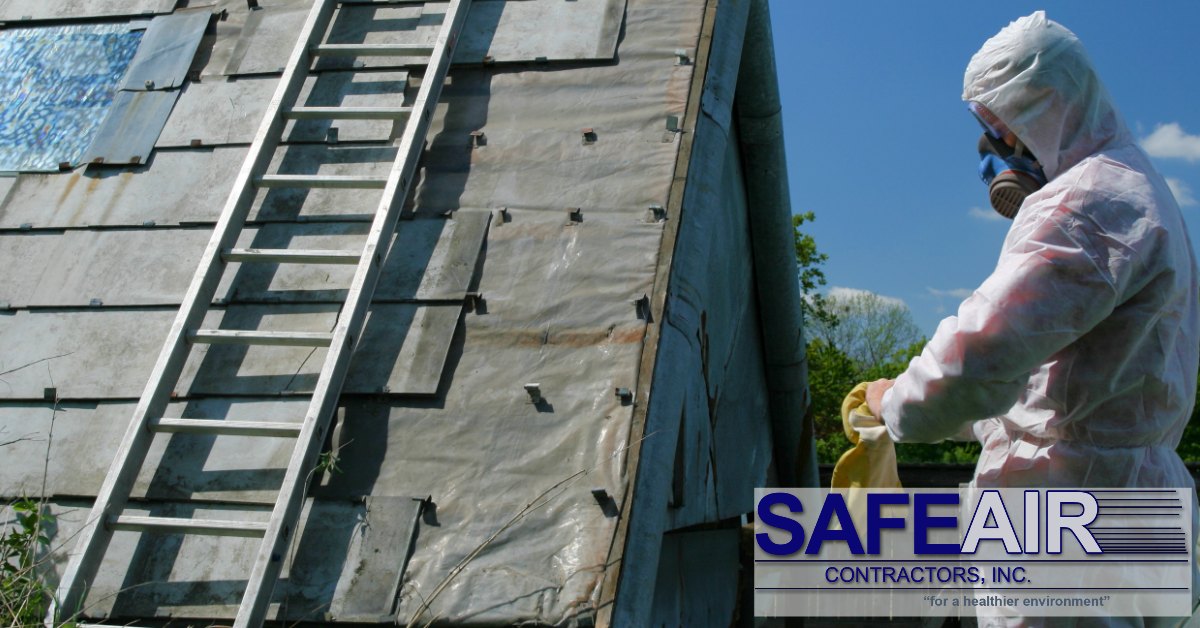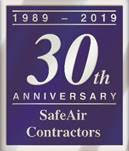As top Cleveland hazardous waste removal experts, we here at SafeAir Contractors often get calls from potential clients with questions about hazardous waste. So today, we are sharing some of your most frequently asked questions and their answers, so you can better determine whether our services are right for you.
Cleveland Hazardous Waste Removal Experts Answer Your FAQ’s
Q: Do I have hazardous waste in my home?
A: There is such a thing as residential hazardous waste – it’s actually referred to as Household Hazardous Waste. Some of the products labeled by the EPA as hazardous include items that could catch fire, explode, or otherwise react in some circumstances. Products that are considered corrosive or toxic are also considered hazardous.
Some examples of these types of products include pesticides, oils, batteries, cleaners, and paints.
Q: What Should I Do with My Household Hazardous Waste?
A: There are household hazardous waste drop-off services, but it’s important to research these locations because they don’t always accept all types of hazardous waste. For example, medical waste, needles, and ammunition require specialty disposal services. Hazardous waste disposal services can also help you with the disposal of your household hazardous waste. If you live in Cleveland or anywhere in Ohio or western Pennsylvania, SafeAir Contractors would be happy to provide you with our residential hazardous waste removal services. We can take care of your hazardous waste clean-up, transportation, and disposal. Just give us a call today at 440-639-1191.
Q: Why Do I Have to Use Residential Hazardous Waste Removal and Disposal Services?
A: There are a number of reasons why the EPA requires you to use hazardous waste removal and disposal services to take care of your household hazardous waste:
- Chemicals from products like house cleaners can leak into the soil and the water system and contaminate them. This doesn’t just affect animals and plants in the nearby area, however, these chemicals can be transported through the waterways, passed from a pregnant animal to her fetuses, and taken up by plants and trees. This means that not only can these chemicals affect a wide radius, they also impact multiple generations of creatures by causing mutations and illness.
- Household medical waste is harmful to everyone. When you improperly dispose of medications, they can leak into the soil and water or be ingested by animals just like cleaners can. When you dispose of waste such as soiled items or needles, you put humankind in danger as well as animals. For example, if someone with an infectious disease or illness were to throw their used medication syringes in the household trash and a sanitation worker were to pick up that bag and get poked by that needle, their life would be changed forever.
- Improperly disposing of items that can explode poses an additional threat to the environment and those living in it. Imagine someone disposing of such an item in their household trash only to have it explode while still in their trash can. This could put lives in danger as well as result in possibly toxic chemicals being dispersed into the environment.
- Pouring hazardous products down the drain is also unacceptable because these chemicals can leach into local soils, can remain in water that is processed for reuse, and can corrode or block city pipes.
Q: How Can I Avoid Using Cleveland Hazardous Waste Disposal Services?
A: While you can limit the amount of hazardous waste that your home produces by changing your habits, most average households still produce hazardous waste that requires proper disposal. You can limit your household hazardous waste by taking some of the measures below.
- Use chemical-free cleaners or home solutions to clean rather than buying harmful chemical-laden products. This isn’t just better for the environment, it’s better for your family’s health too. For example, you can use vinegar and water as a glass cleaner instead of using ammonia-based cleaners.
- Opt for alternative solutions for problems that don’t require harmful chemicals, for example, instead of using corrosive drain cleaners, you can use a plumbing snake to get rid of clogs.
- Store small amounts of SOME materials until you have a larger amount to dispose of. This does NOT go for all waste products, but for items like hot fats which are harmful to city sewer systems, you can keep a container that you pour the fat into each time you cook. When that container becomes full, you can dispose of it properly or – if you store it correctly – you can use it in other cooking recipes!
Are You In Need of Cleveland Hazardous Waste Removal Services?
If you are in need of Cleveland hazardous waste removal services, SafeAir Contractors can help. Just pick up the phone and give us a call today and we’ll arrange to have our licensed hazardous waste management team with you in no time at all.


